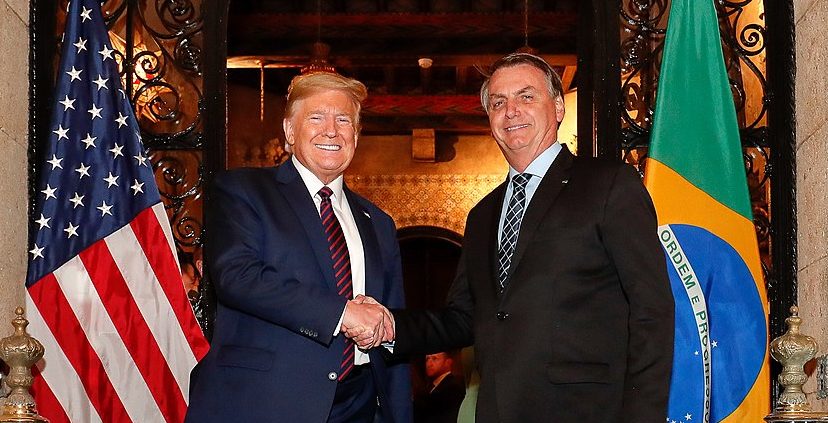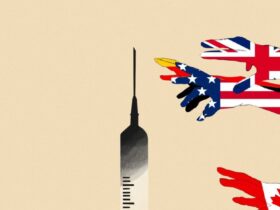The coronavirus pandemic has transformed the United States and Brazil into unlikely twins. Both Brazil and the United States have the highest rates of confirmed coronavirus cases in the world, with the United States at over 5 million confirmed infections and Brazil at over 3 million. Both countries also have the highest number of confirmed deaths linked to coronavirus; the United States has just over 170,000 and Brazil has over 100,000. Leaders in both countries have also discouraged an expansion of testing, and thus it can be inferred that the actual number of cases and deaths is much higher than reported.
The fact that the United States and Brazil have found themselves in such similarly dire situations is striking given the inherent differences between the two countries. Though the United States and Brazil are both in the top ten most populous countries of the world and both have a primarily urban population, there are still key differences between the two countries.
While the United States is considered a developed country, if not a superpower, Brazil is considered a developing country by most accounts. In a 2020 U.S. News ranking of countries’ quality of life, the United States ranked 15th, while Brazil came in 52nd. According to the Organization for Economic Cooperation and Development Better Life Index, the average household net adjusted disposable income in Brazil is $12,701, compared to the United States’ average of $45,284.
Apart from differences in wealth and quality of life, the two countries also play very different roles within the international system. Historically, the United States has acted as the political and economic leader for the international community, whereas Brazil has only recently become a prominent voice in international forums due in part to its emerging economy. One would infer that as a wealthier and more politically powerful country, the United States would be at the forefront, leading the fight against the coronavirus pandemic — but that is not the case.
Failed leadership seems to be the most likely common factor to blame for the tragic transformation of these two very different countries into the world’s coronavirus hotspots. Though the political, economic and cultural conditions of these two countries are undeniably different, the political agendas of their leaders, Trump and Bolsonaro, mirror each other quite precisely.
Comparisons have been drawn between the two leaders long before the current crisis, but their responses to the pandemic have made the similarities in their character and policy goals more evident than ever before.
Since the beginning of the pandemic, both Trump and Bolsonaro have made statements using rhetoric that trivializes the gravity of the pandemic. Trump has maintained that the virus will simply “go away.” In February, when the United States had only 60 confirmed cases, he was quoted saying that the “[coronavirus]is going to disappear … one day it’s like a miracle, it will disappear.” In April, when the number of cases was nearing 300,000, he restated this belief: “I said it was going away – and it is going away.” Bolsonaro, on the other hand, has repeatedly called the virus a “little flu,” despite the fact that he has tested positive for the virus three times now.
Both leaders have also blatantly disregarded public health guidelines for social distancing. Trump held his first presidential campaign rally in an arena built for 19,000 people in Tulsa, Oklahoma on June 20. Only around 6,000 people attended the rally, but 261 new cases were reported the following day, a one-day record high for Oklahoma at the time. Multiple Trump campaign staffers also tested positive for the virus in the days following the rally. Similarly, Bolsonaro has interacted with crowds on several occasions without wearing a mask. He also held a news conference on July 7 to announce that he had tested positive for coronavirus and took off his mask while surrounded by reporters.
Additionally, both presidents have fought lockdown measures in efforts to open up the economy. In both the US and Brazil, supporters took to the streets to protest lockdown measures upheld by states and supreme courts. Both Trump and Bolsonaro openly encouraged protests of social distancing restrictions.
Trump and Bolsonaro’s responses to the coronavirus pandemic can be summed up as openly irresponsible. But, their responses are much more than just a failure of decision making. Thousands of people have lost their lives in the United States and Brazil, and in both countries, marginalized groups have been affected the most.
In Brazil, Indigenous people are the most vulnerable to the virus and are six times more likely to be infected by coronavirus than white people, according to a Brazilian study. And unfortunately, the six cities with the highest exposure are all on the Amazon river where the coronavirus has been quick to reach even the most remote Indigenous villages, traveling along the river with boats.
In the United States, minority and low-income populations are more vulnerable to infection. President of the American Academy of Family Physicians, Dr. Gary LeRoy, stated that the “COVID pandemic has really shined a spotlight on the discrepancies in health care outcomes for people of color and of lower socioeconomic status.” In the United States and Brazil, there are historical discrepancies in the health outcomes for minorities and Indigenous people and the coronavirus pandemic has brought this inequality to light.
The global pandemic has highlighted how racism is entrenched in the political, social, and economic systems of both the United States and Brazil. The fight against systemic racism is not new, but Trump and Bolsonaro’s poor responses to the coronavirus pandemic, along with the rise of police killings and anti-Black violence, have served to reignite the anti-racist movement.
In both countries, protesters have taken to the street to speak out against the oppression of Black people, Indigenous people and people of color, and have been met with violence and police brutality. It has become evident that the coronavirus pandemic is not the only pandemic that Bolsonaro and Trump have failed to respond to. Systemic racism is also rampant in both Brazil and the United States and the continued lack of appropriate response only adds to these countries’ death tolls.







